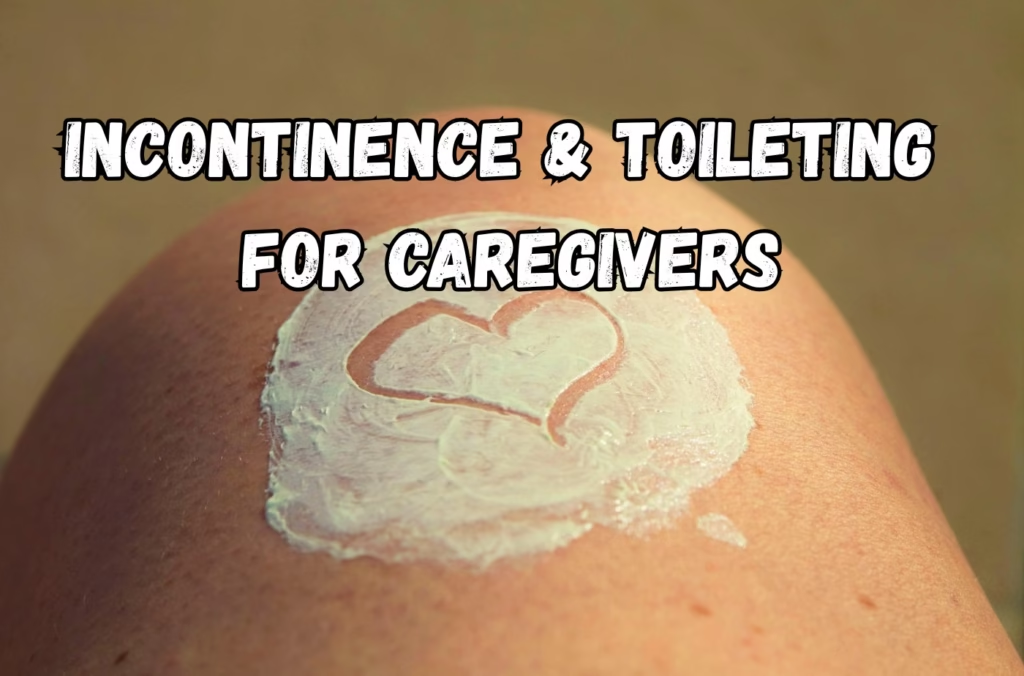Within the dynamic spectrum of caregiving, young adults bear a unique set of responsibilities and challenges that often remain unspoken. As these Young Adult Caregiver Considerations take center stage, it’s imperative to acknowledge the intricate roles these young adults play in the lives of those they care for. What are the specific concerns and hurdles faced by this demographic, and how can they navigate their caregiving journey with resilience?
1. Identifying Young Adult Caregiver Challenges
The Emotional Weight of Caregiving at a Young Age
Caring for an ailing loved one is a profound act of love, yet it often comes with heavy emotional stress, especially for those in the throes of youth. Young adult caregivers routinely experience feelings of isolation, as their peers may not understand the magnitude of their responsibilities. This can lead to increased anxiety and depression, particularly since they might feel they’re missing out on typical young adult experiences.
The task of providing emotional support and practical care can be overwhelming, often triggering a sense of premature adulthood that usurps the more carefree chapters expected at this stage of life. It’s vital for these individuals to access emotional support systems, be it through counseling, support groups, or online communities tailored to young adult caregiver considerations.
Balancing Education, Career, and Caregiving Roles
Youth is typically a time for personal and professional development, but young adult caregivers can find themselves struggling to juggle educational pursuits and burgeoning careers with their caregiving duties. Schools and workplaces have various levels of flexibility and understanding regarding caregiving challenges, and not all young adults are able to secure accommodations.
This juggling act can put a strain on their academic and professional growth, as caregiving roles may limit the time and energy they can devote to these areas. It’s essential that young caregivers seek out and advocate for supportive resources and policies within their schools and workplaces to establish a more sustainable balance.
Navigating Financial Stress and Caregiving
Caregiving can be a significant financial burden, particularly for young adults who may not have established careers or savings. The costs associated with caregiving—such as medical bills, transportation, and possibly reduced working hours—can result in a considerable financial strain.
Young caregivers might find themselves facing tough decisions about prioritizing expenses and might be unaware of potential supports available, such as financial aid, caregiver allowances, or other government programs. It’s imperative for them to seek financial advice and explore all available resources to mitigate the economic pressures of caregiving.
Encountering these challenges at a young age can seem daunting, but awareness and access to support networks and resources make a significant difference. By addressing the unique obstacles faced by young adult caregivers, we can pave the way towards a more manageable caregiving journey for these individuals.
2. Building a Supportive Environment for Young Adult Caregivers
The Importance of Peer Support Networks
For young adult caregivers, connecting with peers who understand their distinctive challenges is incredibly beneficial. Such networks offer emotional solace and practical advice, affirming that they are not alone in their journey. Engaging with peer support groups—whether in person or online—can provide young adults with a compassionate space to share experiences, solutions, and resources.
These networks also play a pivotal role in the exchange of information about coping strategies and navigating care responsibilities, which can significantly reduce feelings of isolation. Making use of social media platforms and community forums tailored to caregivers can further broaden their support system.
Accessing Professional Mental Health Resources
Maintaining one’s mental health is paramount when shouldering caregiving duties. Professional mental health resources, such as counseling and therapy, can equip young caregivers with the tools to manage stress, anxiety, and potential burnout. Seeking out professionals who specialize in caregiver issues can lead to more tailored and effective support.
Additionally, therapeutic interventions and workshops designed for caregivers can prove to be invaluable resources, providing strategies to handle emotional and psychological challenges. Some healthcare providers and organizations offer these services at reduced rates or even for free, making them more accessible.
Fostering Family and Community Understanding
Young adult caregivers often need their immediate family and broader community to recognize and respect their role. Educating family members about the realities of caregiving can help in garnering the necessary support and assistance. This involves an open dialogue about the caregiver’s needs, boundaries, and the challenges they face daily.
Fostering an understanding environment extends beyond the family unit—it includes the workplace, educational institutions, and community services. Employers and schools can be encouraged to establish policies and programs that accommodate the unique responsibilities of young caregivers. Moreover, community education initiatives can raise awareness and support for these individuals, promoting a more inclusive and understanding approach to young adult caregiver considerations.
By focusing on developing peer support networks, facilitating access to mental health resources, and fostering an environment of understanding within families and communities, we can significantly improve the well-being and quality of life for young adult caregivers.
3. Addressing the Work-Life-Caregiving Balance
Advocating for Flexible Work or Education Schedules
Considering the demanding nature of caregiving, one critical aspect of maintaining balance is negotiating flexibility with employers or educational institutions. This may include seeking options like telecommuting, adjustable working hours, or even part-time schedules that accommodate caregiving responsibilities. Similarly, educational entities can offer online classes or recording lectures, ensuring that young adult caregivers don’t fall behind in their academic pursuits while managing caregiving duties.
Utilizing Time Management Strategies for Caregivers
Effective time management is vital for caregivers to prevent burnout and manage their myriad responsibilities. It’s important to prioritize tasks, setting aside time for the most critical activities first. Establishing a routine that integrates caregiving, work, and personal time can also enhance productivity and reduce stress. Additionally, utilizing calendars and to-do lists, either digitally or on paper, can help keep track of appointments, medication schedules, and other important events.
Delegation of tasks where possible can also be a huge relief. Whether it’s asking family members to help with grocery shopping or utilizing delivery services, every bit of assistance helps free up time and energy.
Exploring Backup Care Plans and Respite Options
It’s crucial for young adult caregivers to have backup care plans in place. This might involve arranging for alternative caregivers who can step in during emergencies or planned breaks. Investing time in finding trustworthy individuals or professional services that align with the care recipient’s needs can be immensely beneficial.
Seeking respite care services is another strategy that should be explored. Respite care provides temporary relief, allowing caregivers the opportunity to take a break, tend to their personal needs, or simply recharge. Identifying local resources such as adult day care centers, in-home respite services, or short-term assisted living stays can be instrumental in creating a balanced caregiving situation.
In navigating these challenges, it’s essential to consider these Young Adult Caregiver Considerations to ensure personal well-being while providing the best possible care to loved ones. Reaching out to support groups and online communities can also provide additional resources, support, and advice tailored to young caregivers’ unique situations.
By addressing these tactics, young adult caregivers can find a more sustainable path that honors their own lives and goals while fulfilling their caregiving commitments.
4. Practical Solutions to Young Adult Caregiver Considerations
Technology and Tools to Ease the Caregiver’s Burden
Innovative technology and tools play a crucial role in simplifying the responsibilities of those providing care. Mobile health apps and telemedicine services enable caregivers to manage health records and medication schedules efficiently, often directly from their smartphones. Investing in personal emergency response systems (PERS) can provide peace of mind, ensuring that quick assistance is available in case of emergencies.
Additionally, utilizing online platforms for meal delivery and transportation services can help streamline daily tasks. Similarly, smart home devices, such as voice-activated reminders and automated lighting, can assist in creating a safer and more manageable living environment for both caregivers and care recipients.
Financial Assistance Programs for Young Adult Caregivers
Understanding the financial landscape is vital for caregivers. Numerous states offer Medicaid waivers that may compensate family members for caregiving services. In some cases, the care recipient’s long-term care insurance may also provide a benefit that can be directed towards compensating a caregiver. Exploring these avenues can provide some relief from the economic pressures associated with caregiving.
Moreover, caregivers should research local and national support organizations and charities. Many offer grants, respite care, or other forms of financial assistance. Organizations such as the Family Caregiver Alliance (FCA) and the National Alliance for Caregiving (NAC) can be valuable resources for identifying such support.
Legal Considerations and Power of Attorney
Navigating legal matters is a significant aspect of Young Adult Caregiver Considerations. It is essential for caregivers to establish clear legal authority to make decisions when necessary. Obtaining a Power of Attorney (POA) can allow a young adult caregiver to manage financial, health, and legal affairs on behalf of the care recipient. Caregivers should consult with an attorney to understand the types and extent of POA, ensuring the documents are in line with state laws and the care recipient’s wishes.
Additionally, looking into healthcare directives and living wills is important. These documents provide guidance on the care recipient’s preferences for medical treatment and interventions. Taking these legal steps not only ensures that the young adult is equipped to make informed decisions but also that the care recipient’s voice is heard, even if they become unable to articulate their desires.
Remember to consult with legal and financial professionals to ensure you’re accessing all available aid and are fully informed about the legal instruments at your disposal. These measures can bring some ease and structure to the complex role of caregiving.
5. Encouraging Self-Care and Personal Growth
The Necessity of Self-Care for Caregivers
For individuals who dedicate their time and energy to caring for others, self-care is not a luxury but a fundamental need. It’s crucial for caregivers, especially young adults, to understand that neglecting their own health and well-being can lead to burnout, which ultimately undermines their ability to provide quality care. Engaging in self-care practices helps maintain their physical, psychological, and emotional health.
Self-care routines can be as simple as ensuring adequate sleep, nutritious meals, and regular physical activity. It’s also important for caregivers to set aside time for activities they enjoy, whether that’s reading, walking in nature, or pursuing a hobby. This ‘me time’ acts as a recharge, providing the caregiver with the energy and patience needed to face the demands of their role.
Personal Development Opportunities Amidst Caregiving Duties
In the midst of their caregiving responsibilities, young adult caregivers often overlook opportunities for personal growth. However, it’s possible to find ways to develop new skills and knowledge while fulfilling their caregiving duties. This might involve online courses, local community classes, or even learning from the caregiving experience itself.
By seizing these opportunities, caregivers can enhance their resumes, prepare for future career prospects, and foster a sense of personal achievement. Understanding that their role is valuable not just to their loved ones but also to their personal growth can be immensely motivating and rewarding.
Building Resilience and Coping Skills
As a young adult caregiver, it’s essential to develop a resilient mindset and effective coping skills. These are the tools that will help manage the inevitable stressors and challenges that come with caregiving. Building resilience can mean learning to adapt to changing situations with a positive attitude and an open mind.
To build resilience and cope effectively, caregivers might engage in mindfulness practices, join support groups, or seek counseling. These resources provide valuable support, ensuring caregivers don’t feel alone in their journey. Coping strategies such as problem-solving, time management, and communication skills, can not only alleviate stress but also improve the quality of care provided.
By prioritizing their own self-care and personal growth, young adult caregivers can foster a balanced life where both they and those they care for flourish. Through developing these considerations, caregivers can navigate the complex role with greater ease and effectiveness.
Intriguing Insight: Despite the pressing demands, studies indicate that young adult caregivers often develop profound empathy, advanced problem-solving skills, and a strong sense of responsibility that distinguishes them in various aspects of life. By turning to the right support systems and resources, these young caregivers can not only manage their challenges effectively but also emerge with invaluable life lessons.


